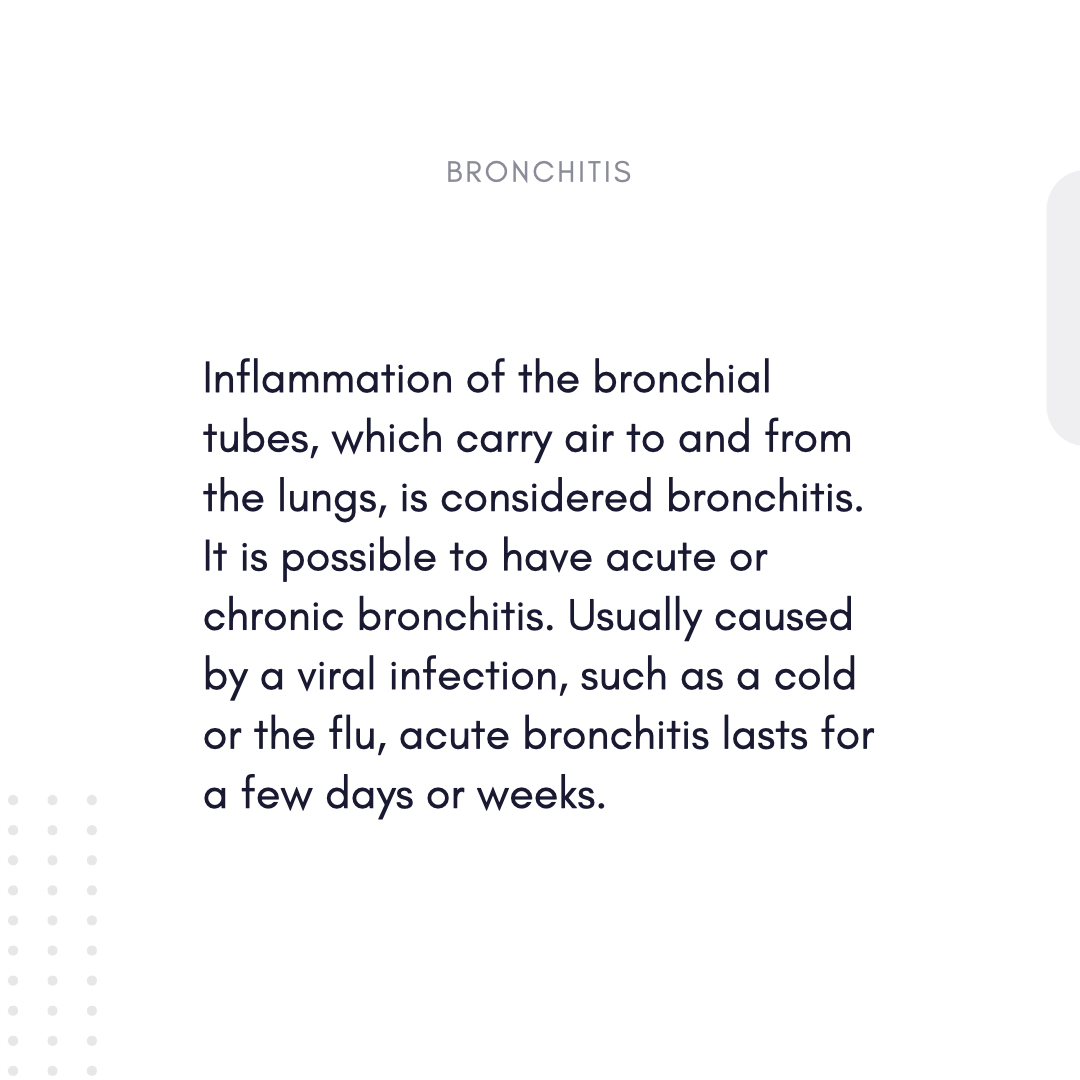Direct Primary Care (DPC) for Bronchitis: Timely, Patient-Centered Care for Respiratory Relief
Bronchitis, an inflammation of the bronchial tubes, can interfere with daily life when one cough constantly, generates mucus, and experiences chest pain. Emphasizing fast access, accurate diagnosis, and preventative strategies matched with guidelines from the American College of Chest Physicians (ACCP), Direct Primary Care (DPC) offers a simplified, individualized approach to manage acute and chronic bronchitis.

Quick Diagnosis and Evidence-Based Approach
DPC's Individualized Bronchitis Control
-
Preventive and Reducing Risk
- Give tailored tools (nicotine patches, counseling) to reduce chronic bronchitis risk.
- Vaccine: Give elderly patients with high risk (such as COPD) flu and pneumonia vaccinations to help avoid aggravations.
-
Cooperation Among Pulmonologists: Coordination of Continual Care
- See experts for pulmonary rehabilitation or advanced COPD control.
- Track spirometry results to adjust inhalers or oxygen treatment as needed.
-
Complete Support: Mental Health
- Treat dyspnea or chronic cough by applying stress-reducing techniques.
- Changes in the surroundings: Advice on reducing air pollution exposure (including occupational irritants, indoor allergens).
Why DPC Excels in Bronchitis Treatment?
-
Availability and Continuity
- Direct Communication: Change prescriptions or discuss worsening symptoms over text or a phone right away.
- Frequent follow-ups enable you to monitor recovery and prevent relapse, so ensuring compliance to treatment recommendations.
-
Transparency Regarding Costs
- Affordable healthcare: Not surprisingly, membership pays for follow-ups, basic tests, and consultations. Not a bill here.
- Work with pharmacies to lower the cost of inhalers, nebulesizers, or antibiotics.
-
Guideline-Based Treatment Aligned Approach
- Under ACCP compliance, use evidence-based guidelines for antibiotics, diagnostics, and symptom management.
- Early intervention and patient education will help to reduce ER visits by helping one to avoid overtreatment.
DPC Advantage for Bronchitis Patients
- Early Intervention
- Stop development to pneumonia by means of rapid assessment and tailored treatment.
- Under expert coordination and continuous monitoring, control COPD-related bronchitis.
- Share with patients red flag (e.g., high fever, bloody mucus) awareness and self-care techniques.
Final Thoughts
- Treating bronchitis depends mostly on confidence and accessibility.
- Providing preventative strategies, individualized treatment, and same-day evaluations, DPC's approach eliminates challenges including high costs and long waits.
- For acute cases, DPC promises symptom relief without unnecessary antibiotics; it provides ongoing support to enable chronic sufferers have better lung health and quality of life.






